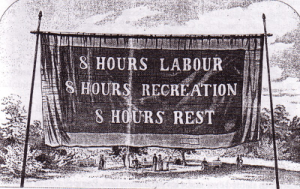T he political climate is ramping up for the upcoming presidential election, and, as always, the courts are a stage for political theatre.
he political climate is ramping up for the upcoming presidential election, and, as always, the courts are a stage for political theatre.
Recently, Nevada Attorney General Adam Laxalt, a Republican, filed a lawsuit in U.S. District Court in Eastern Texas to block the promulgation of a new rule by the US Department of Labor and the Obama Administration. The lawsuit claims the rule is unconstitutional, violates federal rule-making procedures, and exceeds Congressional authorization.
The new regulation would require employers to pay overtime to white-collar workers who earn less than $913 weekly. That’s about twice the current cutoff of $455 per week for overtime eligibility, making nearly 4 million more higher-earning workers eligible for overtime pay.
“This rule, pushed by distant bureaucrats in D.C., tramples on state and local government budgets, forcing states to shift money from other important programs to balance their budgets, including programs intended to protect the very families that purportedly benefit from such federal overreach,” Laxalt said in a statement.
The lawsuit came the same day that the U.S. Chamber of Commerce and more than 50 other business groups filed a legal challenge against the regulation. In addition, officials from 21 states, including Michigan, have joined in support of the lawsuit.
Michigan Attorney General Bill Schuette issued a written statement, “This rule could have a significant impact on taxpayers and job creation. We joined with nearly half of U.S. states to fight against a federal overreach that could cost Michigan residents jobs and services.”
On the contrary, The US Secretary of Labor, Thomas Perez, is pushing the rule as a non-partisan face-lift to the Fair Labor Standards Act. He cites that 62 percent of full-time salaried workers in 1975 were eligible for overtime, whereas only 7 percent of full-time salaried workers are eligible today.
“Despite the sound legal and policy footing on which the rule is constructed, the same interests that have stood in the way of middle-class Americans getting paid when they work extra are continuing their obstructionist tactics,” said Perez.
It sounds like the U.S. District Court in Eastern Texas is in for some great courtroom drama.
This article was written by John Toth, law clerk.



